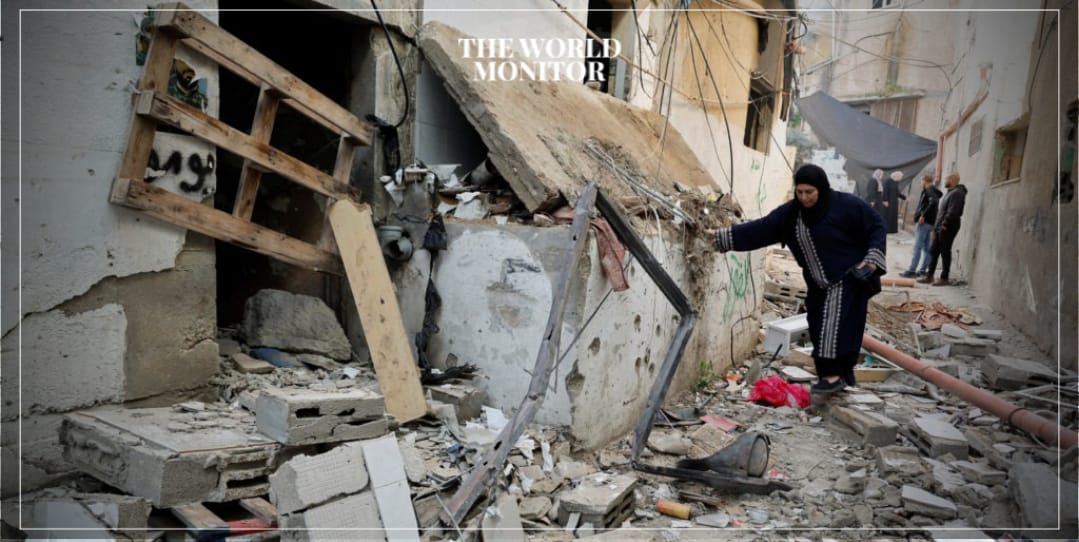On November 29, the Israeli army declared the West Bank city of Jenin and its refugee camp as a “closed military zone,” leading to a series of brutal overnight raids and prolonged clashes extending into the morning.
According to Palestinian news agency WAFA, Israel deployed significant forces with reinforcements across various neighborhoods in Jenin, initiating a massive campaign of arrests in the eastern part of the refugee camp. The clashes between Israeli troops and resistance fighters persisted into the following day, resulting in injuries to several Palestinians.
WAFA reported intentional destruction of infrastructure in the Jenin refugee camp by the army’s bulldozers, particularly in the Al-Damj and Al-Samran neighborhoods. Heavy drone flights overhead coincided with the destruction, causing further damage to roads and water and sewage networks.
In addition to a drone strike on the Jenin camp, Israeli forces tightened their siege on Ibn Sina Hospital, which had been encircled during a previous raid, along with two other health facilities. An ambulance crew was detained at the Jenin Government Hospital, surrounded by Israeli troops.
During the raid, snipers were reportedly positioned on rooftops in the city and near the Jenin refugee camp, heightening fear among residents.
This development in Jenin occurred as Gaza entered the sixth day of a truce, with Egyptian and Qatari officials working to extend the ceasefire. Hamas spokesman Ghazi Hamad emphasized that the ceasefire agreement applies only to the Gaza Strip, expressing concern over serious violations of the occupation in the West Bank and reaffirming the commitment to resist the occupation wherever it occurs.






